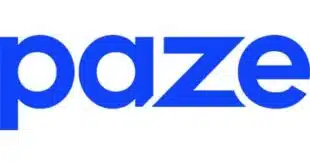The unceasing controversy over the Durbin Amendment and its debit card interchange price controls continued Wednesday when two members of Congress declared they would introduce legislation to repeal the measure. The Republican-controlled House of Representatives might very well pass the bipartisan proposal, but its survival chances are much lower in the Senate, where the amendment’s chief sponsor, Sen. Richard Durbin of Illinois, is the majority whip and has staunchly defended his legislation. A Durbin spokesperson dubbed the bill “another big-bank bailout.”
U.S. Rep. Jason Chaffetz, R-Utah, said he would introduce his repeal measure, H.R. 3156, with U.S. Rep. Bill Owens, D-N.Y. “This is a perfect example of the dangers of price controls and the inefficiency of government intervention in the free market,” Chaffetz said in a statement. “The Durbin Amendment is an affront to consumers and the banking industry. These legislatively enacted price controls have compelled banks to charge consumers higher (and in some cases new) fees to make up for lost revenue.”
Owens said the amendment would hurt small banks and credit unions even though financial institutions with less than $10 billion in assets are exempt from the debit transaction cap of 21 cents plus 0.05% of the sale imposed by the Federal Reserve to implement the amendment. Banks averaged 44 cents in revenue per debit transaction in 2009. In a statement, Owens didn’t spell out exactly what the harm would be, but trade groups representing community banks and credit unions largely oppose the Durbin Amendment, saying market forces eventually could shave their interchange income down toward regulated levels. That, in turn, could pressure more banks to raise consumer fees. “While Congress clearly intended to exempt these smaller institutions from the cap on interchange fees, it’s clear the Durbin Amendment will have unintended costly consequences for my constituents and their checking accounts,” Owens said.
In fact, the Independent Community Bankers of America industry group issued a press release late Wednesday in support of the Chaffetz-Owens bill. “A business model in which community-bank debit cards cost four to five times more to accept than large-bank debit cards is simply not sustainable,” the release says. “This lopsided pricing between regulated and unregulated cards will put community banks and their customers at a severe disadvantage over time.” How the ICBA arrived at its acceptance-cost estimates was not immediately clear.
The Durbin Amendment took effect Oct. 1. Questions about its effects on consumers have been rising for weeks as banks began adding account fees and Bank of America Corp., the nation’s biggest bank by deposits and largest debit card issuer, revealed it would charge some customers $5 for every month they use their debit cards for purchases. Big banks are saying they need to recover revenues lost to the Durbin Amendment and other regulations.
The Electronic Payments Coalition, a lobbying group of payment networks and banks, quickly endorsed the repeal measure. “We now see this unfortunate situation for consumers playing out in the form of higher costs to own and use a debit card, with no promise from merchants that any of their savings will be passed on at the register,” the EPC said.
Durbin, however, is sticking to his guns. “This new bill is another big-bank bailout, nothing more, nothing less,” the Durbin spokesperson said in an e-mailed statement. “Claims that swipe-fee reforms are hurting small banks and credit unions willfully ignore reality; those institutions are exempt from the new regulation and have actually seen a surge in new accounts since reform took effect.” The spokesperson added that efforts to kill interchange reforms “have been tried and have failed in the Senate where there is no interest in rewarding Bank of America’s bad behavior with a multibillion dollar payout.”
A strong Durbin supporter, the National Retail Federation merchant group, said repealing the Durbin Amendment would cost consumers more than $6 billion in interchange savings that merchants plan to pass on to their customers. “Congress needs to stop doing the bidding of the banks and think about the people who paid for the bank bailout not so long ago–consumers and Main Street merchants,” NRF senior vice president and general counsel Mallory Duncan said in a statement.





